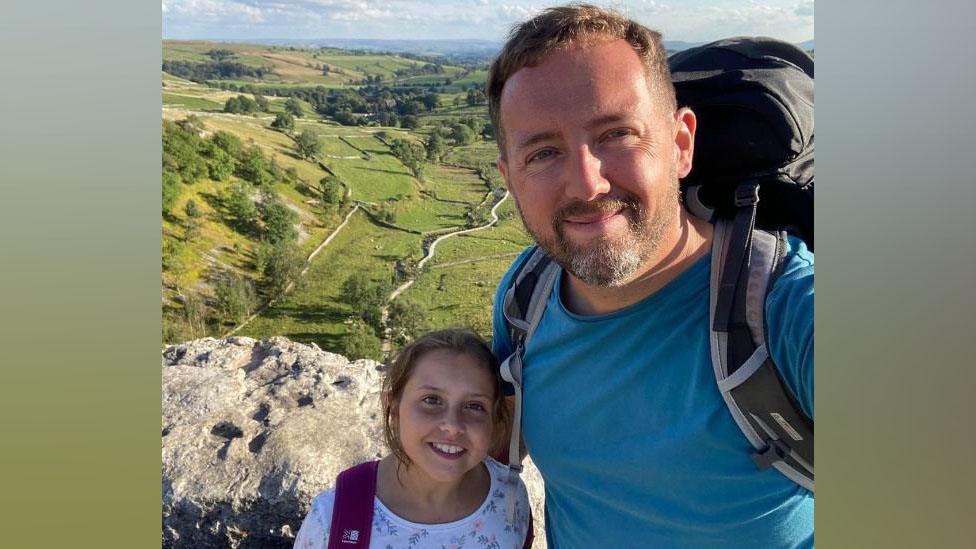Mercy Cuthbertson taking new brain tumour drug after £107k raised
- Published
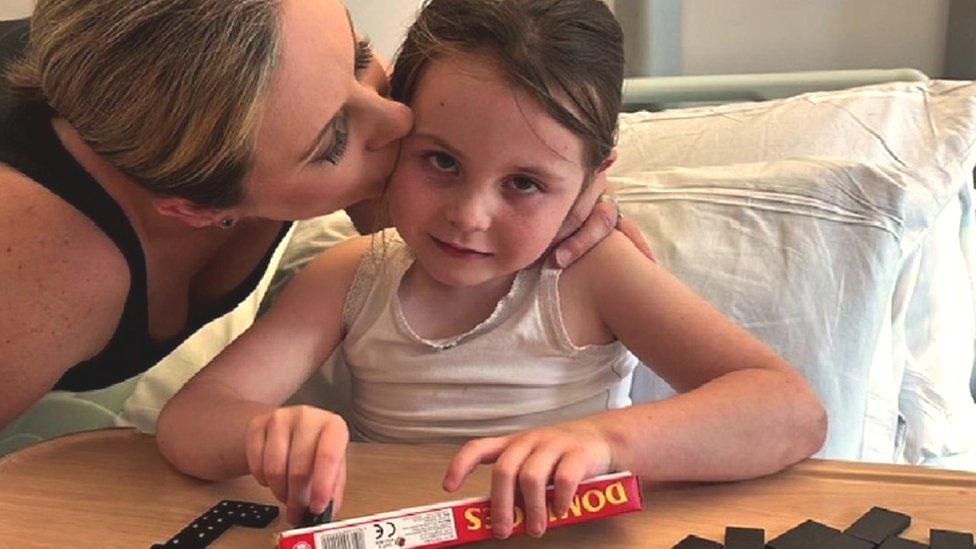
Five-year-old Mercy Cuthbertson has endured brain surgery and 28 radiotherapy sessions since her diagnosis six months ago
A five-year-old girl with a brain tumour has begun treatment with a drug from abroad after her family raised £107,000.
Mercy Cuthbertson's condition is inoperable but she is not eligible for two drug trials in Newcastle because of the location of her tumour.
The Brain Tumour Research charity said more research investment was needed.
The Department of Health and Social Care has been approached for a comment.
Her parents Lorraine and Paul raised the money through crowdfunding to fund clinical trials abroad.
They said they were "deeply moved" by people's generosity and are hoping to reach a fundraising target of £120,000 for Mercy's medical care and options abroad.
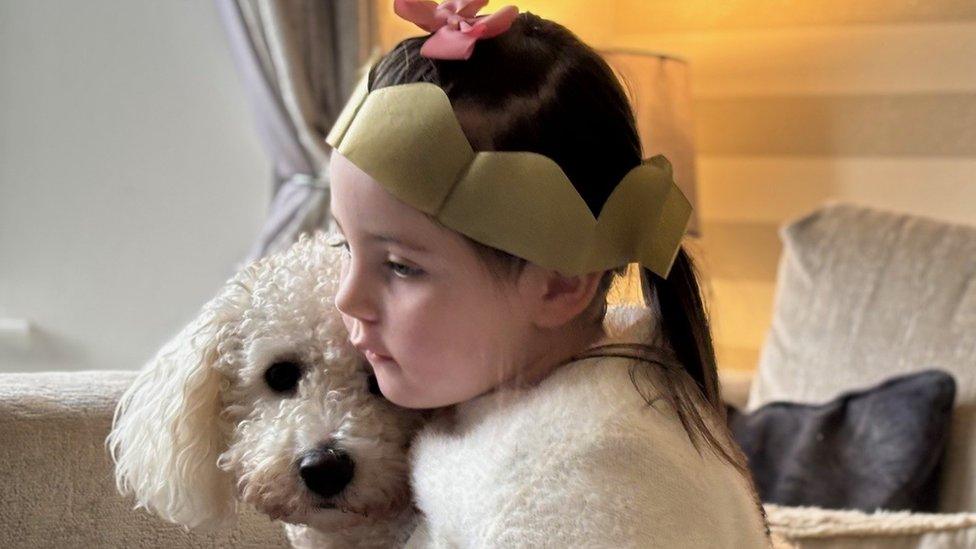
Mercy's parents said they were determined to be positive and give their daughter a "fighting chance"
Since being diagnosed with diffuse intrinsic pontine glioma (DIPG) , externalsix months ago, Mercy, from North Tyneside, has endured surgery and 28 radiotherapy sessions.
Around 20 to 30 children are diagnosed with the condition each year in the UK.
It affects the part of the brain that controls essential functions like heartbeat, breathing, swallowing and eyesight.
There is currently no cure and children with DIPG do not generally live longer than 12 months after diagnosis, according to Brain Tumour Research.
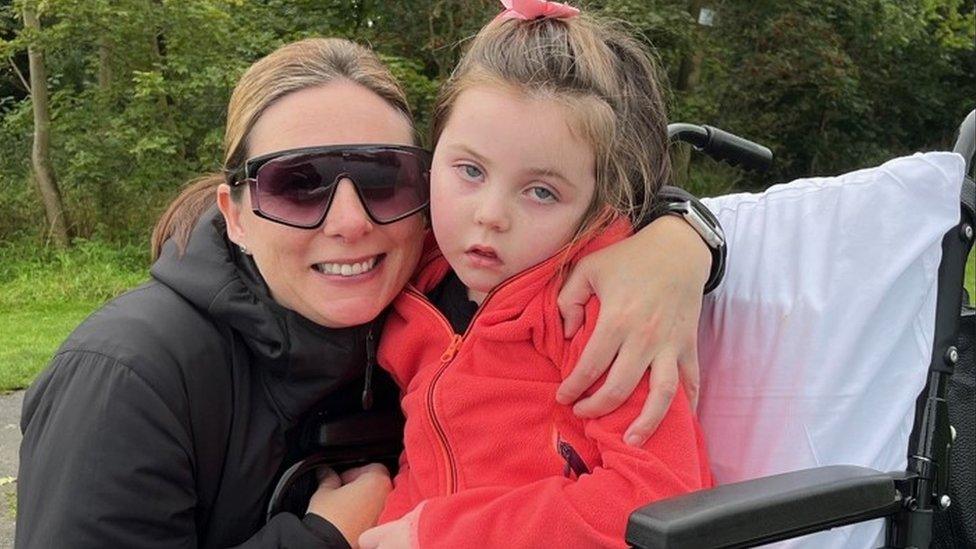
Mercy has so far had four doses of ONC201 which has been imported from abroad
Mrs Cuthbertson, 42, a chief inspector and her 52-year-old husband, a constable, both with Northumbria Police, said they were determined to stay positive.
"When we got the diagnosis, our life as we knew it was turned on its head," Mrs Cuthbertson said.
"Our hope is to stabilise the tumour and prolong Mercy's mobility to keep things normal for as long as possible.
"There are cases, we know of, of people who have taken this medication and the tumour has actually shrunk.
"We are just grateful for every single day, but from the start we've had two choices, me and her dad.
"We can either get up on a morning and say, 'why has this happened to us?'
"But it's not just us, it's happened to lots of families and we don't want to make it about how we feel and how it's affecting us.
"We try and get up every single morning and think, 'we are going to be positive, we are going to fight this for Mercy and this is the option we are taking'."
Mercy has so far had four doses of the drug and her parents hope she will one day be eligible to take part in a clinical trial.
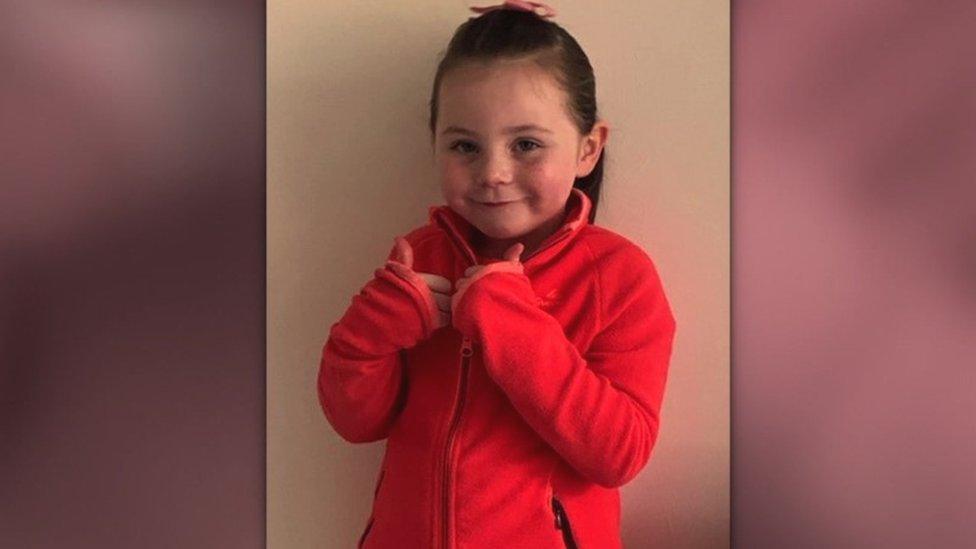
Mercy has diffuse intrinsic pontine glioma (DIPG) which affects about 20 to 30 children in the UK every year
'Unbearable distress'
Hugh Adams, spokesman for Brain Tumour Research, said more investment was needed into research to give families like Mercy's hope.
"We have to do better for all brain tumour patients in the UK, " he said.
"It is the stories of children like Mercy and the unbearable distress and pressure felt by her family that bring home to all of us how important it is that we invest in this area.
"If the government steps up to the mark and joins with research funding charities like ours we will progress from the scientist's bench to the patient's bedside and there will be UK access to clinical trials for all of those diagnosed with this devastating disease.
"If we don't have that investment, then families like Mercy's will search for hope elsewhere and that hope will need to be found, accessed and funded by families and friends.
"That isn't the way it should be - we must fund research that brings hope.
"Mercy, and others like her, provide the inspiration and motivation for the brain tumour community to make a difference."
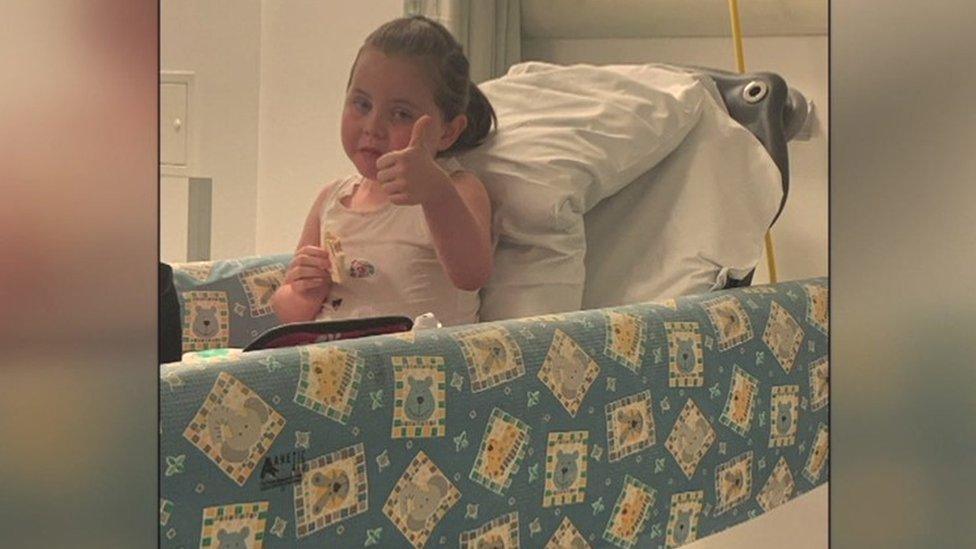
Mercy's parents have thanked people who have donated to the fund for giving her "the best fighting chance"
Amanda Mifsud, trustee for child brain tumour research charity, Abbie's Army, said that almost a third of patients who took part in recent clinical studies of ONC201 lived longer than two years.
She added, however, that the treatment was to "prolong life" rather than "being curative as a single therapy."
Mrs Cuthbertson added: "To everyone who has donated, thank you, you are giving Mercy the best fighting chance."

Follow BBC Newcastle on Facebook, external, X (formerly Twitter), , externaland Instagram, external. Send your story ideas to northeastandcumbria@bbc.co.uk, external.
Related topics
- Published12 January 2024
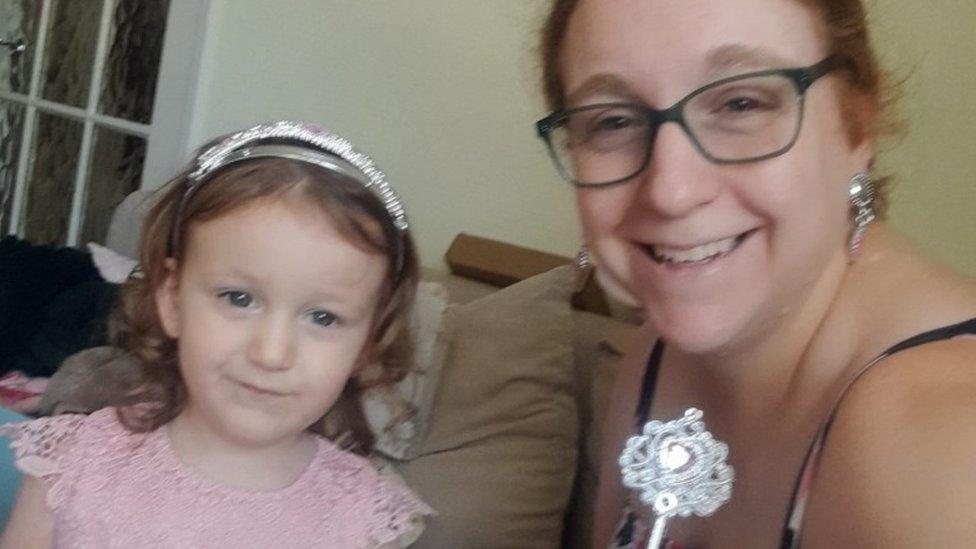
- Published20 July 2023
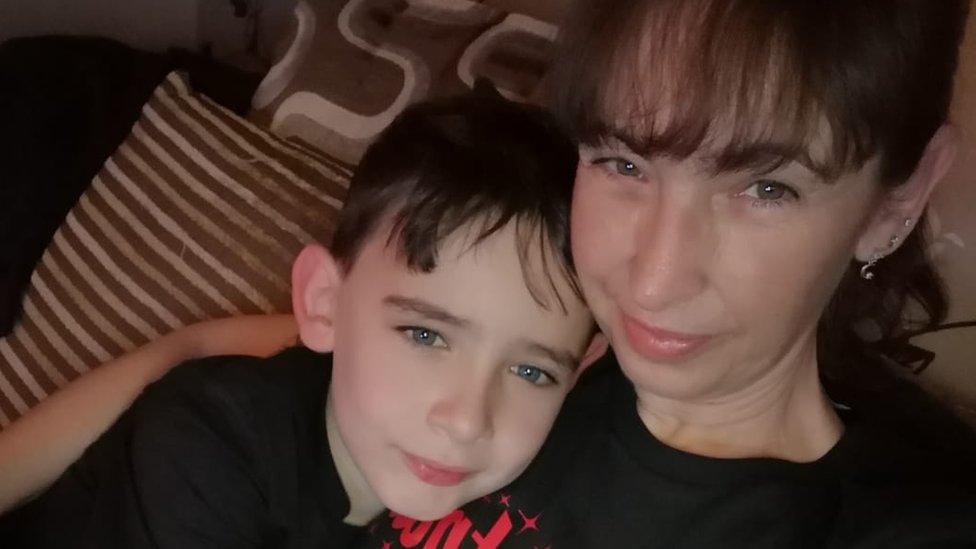
- Published7 June 2023
